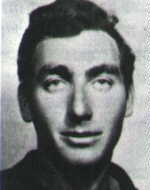The only son of Mordechai and Pesia. Born on December 6, 1948, in Tel Aviv, to parents who had recently immigrated to Israel, he studied at the Talmei Yechiel School in the south of the country, although he was a mature and serious thinker, He loved nature, the country, and man in general, and when he was a student in elementary school, he used to write a journal in which he responded to events in his life in a poetic way. A note he devoted to one song. “There are only a few weeks left for the end of the school year, and that is how we will finish elementary school. The moment has come when we have to decide where we will go now, the moment when we actually determine the future. In the past few days, the students are making a quick and reckless decision to change their future several times a day. “After his teacher wrote about him, he wrote a short list:” I wondered about Shlomo and he was revealed to me as a diligent student. His tongue is witty, rich and spiced with humor – – willingly accepts roles and bears responsibility, writes songs and writes articles. When he was in sixth grade, he was a 12-year-old boy, edited and published the school magazine, where he published poems and articles. Shlomo had been preoccupied with human problems since he was a boy, because he was mature in spirit and ways. Shlomo lived for the sake of others and devoted his energy, love, thought and deeds to the benefit of his friends. “After graduating from elementary school, he studied at the Tzuk Regional High School in Be’er Tuvia, and was a member of the Hanoar Haoved Vehalomed Ashalim was one of the most prominent activists in this division, he was a youth counselor in the moshav and the environment, and he also taught a seminar for youth counselors, where he participated in the first three years of high school, Youth on behalf of his movement to Europe, in order to meet and meet youth abroad. Shlomo was drafted into the IDF in July 1967 and assigned to the Nahal Brigade by the Ashalim group. At first, the parents thought that since he was the only child, he could apply for his release from military service. True, they were wrong, but when Shlomo heard about the idea, he said to them: “Why do not I get a visa in the army, I will make myself a mockery of people if I do not enlist. After training in the Nahal Brigade, Golan moved together with the nucleus to the Hatzeva, to be stationed in the Arava. He came to settle because he knew the value of the work of the land and knew that this “preoccupation” had to do with public work, the same work he did with all his Lev and with endless responsibility. In the last year of his life he was involved in organizing a new settlement nucleus on behalf of the Moshavim movement. But he did not get to recruit him. He was a very devoted son to his parents, cared for them and calmed them. Even when he went down to the canal he said he was going to some course, even though the whole village knew the truth. When the conversation turned to the army and his mother expressed her displeasure at her son’s life and expressed her anxiety for his wellbeing, he said to her: “A man has died only once.” He once told his mother that in the Nahal Brigade, one daughter fell, and her parents spoke during the funeral about their daughter, who fell for the homeland – and added: “If something happens to me, I ask you not to cry.” Than a father of a child, or a head of a family of three or four. “On the 27th of Shevat 5702 (February 3, 1970), Solomon fell in the enemy’s bombardment in the Suez Canal area, and was brought to eternal rest in the cemetery The commander of the Maoz outpost wrote to his parents the following day:Nails will not return as heavy a loss as you lost. The loss that has befallen you and us is unbearable, because your son was a symbol of good soldierhood and a symbol of volunteerism. Even in his death he fell while volunteering for the job. Shlomo was a model and a focus of appreciation by his commanders and comrades in arms, and as an adult he served as his father. When he needed a soldier for some job he would immediately respond willingly and be the first volunteer for work and mission. Shlomo could have served in a quieter place, but volunteered to reach the first line. Our only consolation is that he fell in the line of duty. “After his fall, a book named” Shlomo “was published by Hatzeva-Arugot, a youth delegation that went to France and Italy in the summer of 1970 and was named after him.
